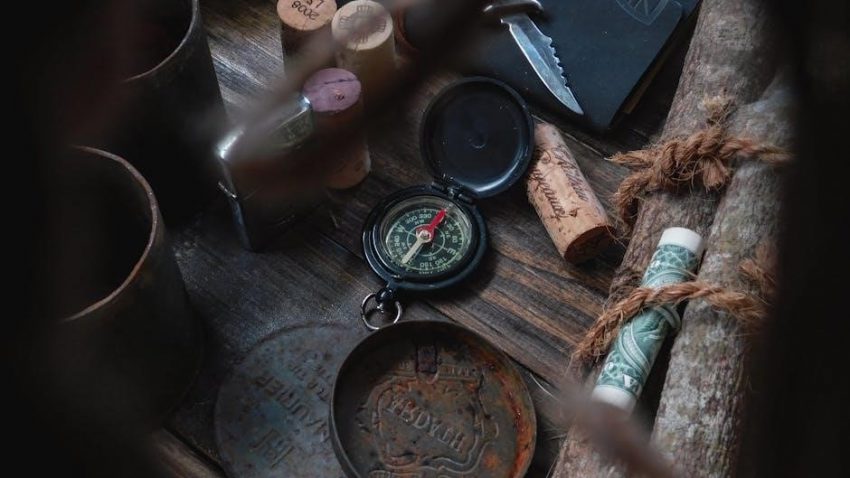Instrument study is a rewarding journey that enhances creativity and skill development. Understanding its importance helps set goals and choose the right instrument, fostering emotional expression and growth.
1.1 Understanding the Importance of Instrument Study
Instrument study fosters creativity, discipline, and emotional expression. It enhances cognitive skills and builds confidence. Learning an instrument provides a sense of accomplishment and personal growth.
Additionally, it promotes cultural appreciation and social connections through shared musical experiences. Understanding its importance helps learners stay motivated and committed to their musical journey. Ethical practices, such as obtaining permissions for instrument use, are also crucial in respecting creators and maintaining professionalism. This foundation ensures a meaningful and enriching experience for aspiring musicians.
1.2 Setting Goals for Instrument Learning
Setting clear and achievable goals is essential for successful instrument learning. Start by defining your objectives, whether it’s mastering a specific genre or improving technique.
Break these goals into short-term and long-term milestones to track progress. Consider your skill level, interests, and the time you can dedicate to practice. Celebrating small achievements will keep you motivated. Align your goals with your musical aspirations to stay focused and enjoy the journey. This structured approach ensures steady improvement and a fulfilling experience.

Choosing the Right Instrument
Selecting the right instrument involves considering your musical interests, skill level, and goals. Choose one that aligns with your passion and the type of music you enjoy.
2.1 Factors to Consider When Selecting an Instrument
When choosing an instrument, consider your musical preferences, skill level, and goals. Think about the type of music you enjoy and whether the instrument suits it. Assess your budget, as some instruments can be costly. Portability and maintenance requirements are also important. Your physical ability and interest in solo or group play should influence your decision. Aligning these factors ensures a fulfilling and enjoyable learning experience. Research and try instruments before committing to find the best fit for you.
2.2 Assessing Your Skill Level and Musical Goals
Assessing your skill level and musical goals is crucial for effective instrument study. Evaluate your current abilities and determine whether you are a beginner or have prior experience. Set realistic short-term and long-term objectives, such as mastering basic techniques or performing complex pieces. Align your goals with the instrument you choose, ensuring it matches your aspirations. Consider starting with simpler instruments if you’re new to music, then progress to more complex ones as your skills grow. This approach ensures a balanced and rewarding learning journey.

Understanding Instrument Basics
Understanding instrument basics involves familiarizing yourself with components, terminology, and maintenance. Knowing how to care for your instrument ensures longevity and optimal performance, enhancing your learning experience.
3.1 Components and Terminology of Musical Instruments
Understanding the components and terminology of musical instruments is crucial for effective learning. Instruments have specific parts like strings, keys, valves, or drums, each serving a unique function. Terms such as pitch, tone, and resonance describe sound qualities. Familiarizing yourself with these elements helps in identifying and maintaining instruments. For example, string instruments have tuning pegs, while wind instruments use reeds or mouthpieces. Percussion instruments rely on surfaces like membranes or cymbals. Knowing these basics enhances your ability to play, maintain, and appreciate the instrument’s craftsmanship and sound production.
3.2 Basic Maintenance and Care for Instruments
Proper maintenance ensures the longevity and optimal performance of musical instruments. Regular cleaning, such as wiping down surfaces and polishing metal parts, prevents damage. For string instruments, changing strings periodically is essential. Woodwind and brass instruments require cleaning with swabs and mouthpiece sanitization. Percussion instruments need tight tuning and protection from moisture. Store instruments in hard cases or protective bags to avoid dents or scratches. Avoid extreme temperatures and humidity, as they can warp or crack materials. Regular professional checkups are also recommended to address any issues promptly and maintain playability.

Learning Resources and Tools
Online tutorials, study guides, and practice strategies are essential for mastering an instrument. These resources provide structured lessons, enhancing skill development and fostering a deeper understanding of music.
4.1 Online Tutorials and Study Guides
Online tutorials and study guides are invaluable for instrument learning, offering structured lessons and practical exercises. They cover various skill levels, from basics to advanced techniques, ensuring comprehensive understanding. Many resources include video demonstrations, interactive tools, and downloadable materials, making learning accessible and engaging. These guides often align with specific musical genres, helping learners focus on their interests while building foundational skills. Utilizing these tools can significantly accelerate progress and provide motivation throughout the learning journey. They are a modern, effective way to master an instrument efficiently.
4.2 Recommended Practice Strategies
Effective practice strategies include setting specific goals, breaking sessions into focused intervals, and using structured plans. Start with short, manageable routines, gradually increasing duration as confidence grows. Incorporate warm-ups, technique exercises, and repertoire practice. Reviewing past paper questions and creating 10-minute plans can enhance preparation. Seek feedback and track progress to identify areas for improvement. Utilize model answers and study guides to refine skills. Consistency and patience are key to mastering an instrument and achieving long-term success in musical education.

Legal and Ethical Considerations
Obtaining proper permissions and adhering to copyright laws is crucial when using instruments for research or performance. Ethical practices ensure fair use and respect for intellectual property rights.
5.1 Copyright Permissions for Instrument Use
Obtaining copyright permissions is essential when using instruments for research or performance. Always seek direct permission from authors or publishers to reproduce or use their works. This ensures legal compliance and respects intellectual property rights. Many instruments require licenses, especially for commercial use. Proper citation and acknowledgment of sources are also crucial. If unsure, contacting the copyright holder directly is the best approach. Some instruments may be available with permission upon request, making ethical use straightforward. Understanding these guidelines helps avoid legal disputes and fosters professional integrity in instrument-related activities.
5.2 Ethical Practices in Instrument Research
Ethical practices in instrument research involve transparency, honesty, and respect for intellectual property. Researchers must avoid harm to participants and ensure informed consent when using instruments in studies. Proper citation and acknowledgment of sources are fundamental. Ethical guidelines also emphasize avoiding plagiarism and ensuring data integrity. Instruments should be used responsibly, adhering to their intended purpose. By upholding ethical standards, researchers maintain professional integrity and contribute to trustworthy and impactful studies. These practices foster a culture of respect and accountability in instrument-related research and applications.

Effective Practice Techniques
Effective practice involves setting achievable goals, consistent dedication, and using resources like online tutorials. Break sessions into manageable parts, track progress, and stay motivated for consistent improvement.
6.1 Creating a Practice Schedule
Creating a practice schedule is essential for consistent progress. Start by setting specific, achievable goals for each session. Allocate time for warm-ups, technique exercises, and repertoire practice. Use a planner or app to organize daily and weekly commitments, ensuring balance and avoiding burnout. Regular review and adjustment of the schedule help maintain motivation and adapt to changing priorities. A well-structured plan fosters discipline and maximizes productivity, leading to steady improvement in instrument mastery over time.
6.2 Overcoming Common Challenges
Instrument learners often face challenges like limited time, physical discomfort, or frustration with progress. To overcome these, break tasks into smaller steps and practice consistently. Seek guidance from instructors or online resources to address technical difficulties. Maintain a positive mindset by celebrating small achievements and staying focused on long-term goals. Incorporating mindfulness and relaxation techniques can also help manage performance anxiety. Persistence and adaptability are key to overcoming obstacles and enjoying the journey of instrument study.

Tracking Progress and Staying Motivated
Monitor your advancement by setting milestones and reflecting on achievements. Stay motivated by embracing challenges as learning opportunities and celebrating small successes, fostering a growth mindset and enthusiasm.
7.1 Setting Milestones and Celebrating Achievements
Setting specific, achievable milestones helps break the learning process into manageable steps. Celebrate each accomplishment, no matter how small, to maintain motivation. Recognizing progress fosters a sense of pride and encourages continued effort. Regularly reviewing achievements can also provide insights into areas needing improvement. By acknowledging successes, learners stay positive and focused on their musical journey, ensuring steady growth and a fulfilling experience.
7.2 Staying Motivated During the Learning Process
Staying motivated requires a balance of goal-setting, positive reinforcement, and enjoying the journey. Surround yourself with supportive peers and mentors who encourage progress. Celebrate small victories to maintain enthusiasm, and remind yourself why you started learning. Incorporate music you love into practice to keep it engaging. Overcoming challenges builds resilience, and each step forward, no matter how minor, contributes to long-term success and a deeper connection with your instrument.
Performance and Audition Tips
Mastering performance and audition techniques involves thorough preparation, confidence, and engaging stage presence. Understand your audience, stay focused, and deliver your best to leave a lasting impression.
8.1 Preparing for Auditions
Preparing for auditions requires a structured approach to ensure success. Start by understanding the audition format and requirements, such as the type of instrument, musical pieces, and any specific guidelines. Practice consistently, focusing on both technical proficiency and emotional expression. Seek feedback from mentors or peers to refine your performance; Additionally, research the audition panel to tailor your presentation. Mental preparation is equally important—employ relaxation techniques to manage nervousness. Ensure your instrument is in excellent condition and arrive early to familiarize yourself with the venue. A well-prepared audition demonstrates professionalism and confidence, increasing your chances of a positive outcome.
8.2 Enhancing Stage Presence
Enhancing stage presence involves cultivating confidence and connection with your audience. Practice engaging through eye contact, expressive gestures, and genuine passion for your music. Develop a pre-performance routine, such as deep breathing, to manage nerves and stay focused. Dress professionally to create a positive first impression. Work on storytelling through your instrument to convey emotion authentically. Rehearse in front of others to refine your stage demeanor and adapt to different environments. Consistent practice and self-awareness will help you shine and leave a lasting impact on your audience.
Mastering an instrument is a rewarding journey requiring perseverance. This guide provides key takeaways to help you stay motivated, embrace challenges, and enjoy the rewards of dedicated learning.
9.1 Summarizing Key Takeaways
Instrument study requires dedication, consistent practice, and setting achievable goals. Choosing the right instrument, understanding its basics, and utilizing resources are crucial. Legal considerations, like copyright permissions, ensure ethical practices. Regular practice, tracking progress, and seeking inspiration help maintain motivation. Overcoming challenges and preparing for performances enhance skills. Embracing the journey fosters growth and enjoyment, making instrument study a fulfilling experience that enriches life.
9.2 Encouragement for Continued Learning
Embrace the journey of instrument study with passion and perseverance. Every practice session brings growth, and each challenge overcome strengthens your skills. Remember, music is a lifelong journey, offering endless opportunities for creativity and self-expression. Stay inspired, celebrate small victories, and seek joy in the process. Surround yourself with supportive resources and communities to keep motivation high. Continued learning enriches your life and deepens your connection to music, making every effort worthwhile.
